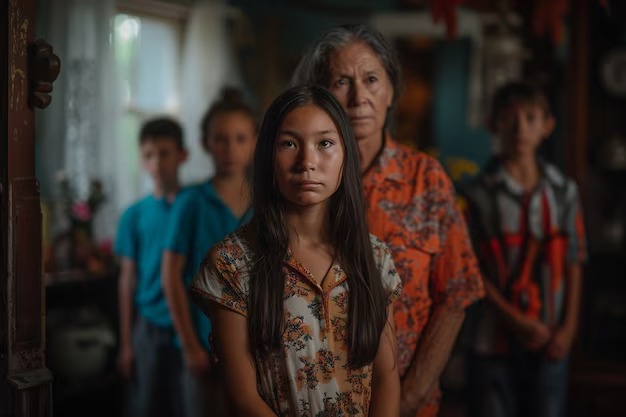Reservation systems, also known as affirmative action or quota systems, have been a topic of extensive debate worldwide. Originating from the need to provide opportunities to historically marginalized or underrepresented groups, these systems aim to ensure fairness and justice in sectors like education, employment, and politics. However, the concept of reservation often brings up complex questions about equity, merit, fairness, and social justice.
The debate surrounding reservation systems is multifaceted. Proponents argue that such measures are necessary to level the playing field for disadvantaged communities, while critics contend that they perpetuate inequality by favoring certain groups over others. In this article, we will explore both sides of the debate, examine the arguments for and against reservation, and consider whether these systems are an effective means of promoting fairness and justice.
Key Takeaways
- Reservation systems aim to create a more equitable society by providing opportunities for historically marginalized communities.
- The main arguments in favor of reservation include promoting social justice, addressing historical injustices, and fostering diversity.
- Critics argue that reservation undermines merit, perpetuates divisions, and creates dependency.
- Continuous evaluation and reform of reservation policies are essential to ensure their effectiveness.
- The debate surrounding reservation is not just about fairness but also about creating a society that is truly just and inclusive for all.
What is the Reservation System?
The reservation system refers to policies that set aside a certain percentage of resources, seats, or opportunities for specific groups of people. These groups are often categorized based on socio-economic status, caste, ethnicity, or other markers of disadvantage. The goal is to create a more equitable society by ensuring that those who have faced systemic oppression or marginalization have equal access to opportunities that would otherwise be denied to them.
In countries like India, reservation systems are implemented to provide opportunities for historically oppressed castes such as the Scheduled Castes (SC), Scheduled Tribes (ST), and Other Backward Classes (OBC). Other countries, like the United States, have affirmative action policies that help provide opportunities for racial minorities, women, and other underrepresented groups in higher education, government employment, and private sectors.
Historical Context: The Roots of Reservation Systems
The need for reservation systems can be traced back to social inequalities that have existed for centuries. In many parts of the world, certain communities were marginalized based on their race, ethnicity, caste, or economic background. These groups were often denied access to education, jobs, political representation, and other basic human rights.
In India, for instance, the caste system has historically divided society into rigid categories, with the lower castes—especially the Dalits (formerly known as Untouchables)—facing extreme social and economic discrimination. Reservation was introduced in India as part of the Indian Constitution to uplift these groups and provide them with equal opportunities.
Similarly, in the United States, slavery and segregation led to the systemic exclusion of Black Americans and other racial minorities from educational and employment opportunities. The civil rights movements of the 20th century sought to address these disparities through affirmative action policies that would ensure equal access to opportunities for marginalized communities.
The Case for Reservation Systems
Promoting Social Justice and Equity

The primary argument in favor of reservation systems is the pursuit of social justice. Historically, disadvantaged groups have been denied access to resources and opportunities, leaving them in a cycle of poverty and disenfranchisement. Reservation systems aim to break this cycle by providing these groups with access to education, employment, and political representation that they would otherwise be denied.
By ensuring that marginalized communities have a voice and access to opportunities, reservation systems contribute to creating a more equitable society. In countries like India, where caste-based discrimination is still prevalent, reservation is seen as an essential tool for empowering the marginalized.
Addressing Historical Injustices
Reservation systems are also seen as a way to compensate for historical injustices. The discrimination faced by marginalized communities has been entrenched over centuries, and many believe that affirmative action is necessary to correct these wrongs. Without reservation, disadvantaged groups might continue to face barriers that prevent them from advancing in society, even in the present day.
Promoting Diversity
Another argument in favor of reservation systems is that they promote diversity, which is beneficial for the wider society. Diverse educational environments, workplaces, and government institutions bring different perspectives that contribute to the overall development of a society. Reservation systems can help ensure that people from a variety of backgrounds are represented in these key areas.
Breaking the Cycle of Poverty
In many cases, members of marginalized communities face systemic barriers that prevent them from accessing quality education or well-paying jobs. Reservation systems can help break the cycle of poverty by providing these groups with opportunities to enter higher education and competitive fields. Over time, this can help reduce inequality and uplift entire communities.
The Case Against Reservation Systems
Perpetuation of Divisions
Critics of reservation systems argue that by categorizing people based on their race, caste, or ethnicity, these policies perpetuate divisions in society. Instead of fostering unity, reservation may lead to further fragmentation, as people are continually reminded of their differences rather than their commonalities.
Merit vs. Quota
One of the most common criticisms of reservation systems is that they undermine the concept of merit. Critics argue that individuals should be chosen based on their abilities, skills, and qualifications, rather than their background. Reservation, they contend, can lead to a situation where less qualified individuals are chosen for opportunities simply because of their caste or ethnicity.
In educational institutions and workplaces, some argue that the best candidates may be overlooked in favor of those from reserved categories, which can result in inefficiency and lower standards.
Dependence on Reservation

Another criticism is that reservation systems can create a dependency on quotas rather than fostering self-reliance. Some argue that individuals from marginalized communities should not rely on reservation but should be empowered through education and skill-building programs to compete on an equal footing with others.
Exclusion of the “Deserving” Poor
In countries like India, where reservation is based on caste, there are concerns that economically disadvantaged individuals from upper castes may not receive the support they need. Critics argue that the focus on caste-based reservation may exclude the economically weaker sections of society that are not eligible for quotas but are still in need of financial assistance or social upliftment.
Reservation as a Political Tool
In many cases, reservation systems have been politicized. Politicians may offer reservation benefits to gain support from certain communities, which can lead to the exploitation of the system. Critics argue that reservation has often been used as a tool for vote bank politics, rather than as a means to achieve real social justice.
The Challenges of Reservation Systems
Implementation Challenges
Implementing reservation systems effectively is a major challenge. In many cases, there are disputes over who qualifies for reservation benefits. This can lead to confusion, inefficiency, and disputes within communities. Moreover, there is often a lack of proper monitoring and accountability in the implementation of these policies.
The Need for Continuous Evaluation
Reservation systems need to be continuously evaluated to ensure that they are meeting their intended goals. As societies evolve and the needs of marginalized communities change, reservation policies must adapt accordingly. There is a risk that reservation systems could become outdated and ineffective if they are not properly reevaluated and updated.
Social Stigma
Individuals who benefit from reservation systems often face social stigma, with others perceiving them as less deserving or capable. This can have negative psychological effects and reinforce societal divisions. The stigma attached to affirmative action can be particularly pronounced in educational and professional settings.
Growing Demands and Resistance
As the demand for reservation benefits grows, it can lead to resistance from groups that feel excluded or disadvantaged by the system. This can exacerbate social tensions and lead to resentment between different communities. The debate on reservation often becomes highly polarized, with strong emotions on both sides.
The Impact of Reservation Policies on Social Equity and Economic Mobility
Reservation policies, also known as affirmative action or quotas, are among the most debated aspects of social justice and equality in societies across the globe. Initially designed as a corrective measure for addressing systemic social and economic inequalities, these policies reserve a certain percentage of opportunities in education, employment, and political participation for historically marginalized or underrepresented communities. The intent behind such policies is to provide a level playing field for disadvantaged groups, fostering social equity and economic mobility.
Despite the good intentions behind reservation policies, their real-world impact remains a matter of intense discussion. On one hand, these policies are credited with opening up avenues for economic empowerment and social upliftment for historically oppressed communities. On the other hand, they are often criticized for perpetuating divisions in society and inadvertently promoting a culture of dependence.
In this article, we will explore the impact of reservation policies on social equity and economic mobility, critically analyzing both their positive and negative consequences. We will look at the ways in which these policies have shaped society and explore whether they truly achieve their intended objectives of promoting fairness, equal opportunity, and social justice.
Understanding Reservation Policies
At its core, a reservation policy is a mechanism that ensures a specific percentage of seats or opportunities are allocated to certain groups of individuals based on their historical, social, or economic disadvantages. These groups may include caste-based categories, ethnic minorities, women, or economically backward classes.
For example, in India, the reservation system allocates a proportion of seats in educational institutions, government jobs, and political bodies for individuals from Scheduled Castes (SC), Scheduled Tribes (ST), and Other Backward Classes (OBC). In the United States, affirmative action policies promote the inclusion of racial minorities, women, and other underrepresented groups in higher education and employment.
The goal of reservation policies is to correct historical wrongs, mitigate systemic inequalities, and enable social mobility by granting access to opportunities that would have been otherwise denied.
Impact on Social Equity
Promoting Inclusion of Marginalized Groups
One of the most significant impacts of reservation policies is the increased inclusion of marginalized groups in institutions of higher learning, public services, and political representation. Reservation ensures that historically disadvantaged groups, such as low-caste communities in India or racial minorities in the U.S., are not left out of important societal sectors.
In India, for instance, reservation in education has allowed individuals from lower-caste communities to gain access to higher education. By providing access to institutions that were once largely inaccessible to them, reservation policies help promote inclusion, thereby allowing these individuals to pursue careers, which were previously unimaginable due to systemic discrimination.
Similarly, affirmative action policies in the United States have helped elevate African Americans, Hispanics, and women into higher education and prestigious careers in fields like law, medicine, and business. This inclusion fosters diversity and brings a broad range of perspectives to professional settings, enriching the societal fabric.
Bridging the Gap in Representation
One of the key elements of reservation policies is increasing representation in decision-making bodies, political offices, and leadership roles. Historically, marginalized groups have had minimal representation in legislative bodies, government offices, or corporate leadership. By reserving seats for underrepresented groups, these policies aim to ensure a more representative and diverse governance structure.
For example, in India, reservation in political offices for women and scheduled castes/tribes has facilitated greater representation in the parliament and state assemblies. The increased visibility of these communities in politics and leadership positions ensures that their voices are heard in critical decision-making processes.
Providing a Sense of Empowerment

Social equity is not just about providing material opportunities but also about empowerment. Reservation policies have contributed to a sense of empowerment among marginalized communities. When individuals from historically oppressed backgrounds are provided with opportunities in education, jobs, and politics, it fosters a sense of belonging and self-worth. This can lead to positive social and psychological outcomes, as these individuals can now envision a future that was once closed off to them due to the constraints of caste, race, or economic status.
Impact on Economic Mobility
Improved Access to Quality Education and Jobs
One of the most significant benefits of reservation policies is that they improve access to education and employment opportunities for individuals who would otherwise be unable to compete in merit-based systems. In countries like India, reservation policies provide opportunities for students from marginalized communities to access prestigious colleges and universities. Similarly, affirmative action policies in the U.S. have facilitated the enrollment of minority students in top universities.
Education is widely recognized as a key factor in breaking the cycle of poverty. By enabling students from marginalized communities to pursue higher education, reservation policies help them acquire skills and qualifications that increase their chances of securing high-paying jobs. This, in turn, leads to better economic mobility and reduces income inequality.
Furthermore, reservation policies in government employment offer job security and social benefits to marginalized communities. Public sector jobs often come with substantial benefits such as pensions, healthcare, and stability, all of which contribute to long-term economic mobility.
Breaking the Cycle of Poverty
Reservation policies help break the generational cycle of poverty by ensuring that individuals from marginalized communities have access to economic opportunities. In societies where the social and economic gaps between different groups are vast, policies like reservation serve as an equalizer. They allow for the upward mobility of individuals who would otherwise be relegated to low-paying jobs, preventing them from accessing better opportunities based on their socio-economic status.
In India, for example, members of lower-caste communities historically faced extreme poverty and social discrimination. By reserving opportunities in education and government employment, these individuals have a better chance of improving their economic standing. With increased educational attainment and job security, many individuals from these communities can lift their families out of poverty and contribute to the broader economy.
Long-term Impact on Community Welfare

Economic mobility does not only affect individuals; it also has a ripple effect on entire communities. As more individuals from marginalized communities gain access to education and jobs, they are able to invest in the welfare of their families and communities. Improved access to education, healthcare, and employment leads to better standards of living, enhanced community infrastructure, and increased social capital.
In the long run, the economic mobility of individuals from underprivileged communities can help reduce disparities between different segments of society, leading to a more balanced and prosperous economy.
The Challenges and Criticisms of Reservation Policies
Perpetuating Social Divisions
While reservation policies aim to promote social equity, they can inadvertently perpetuate social divisions. By focusing on caste, race, or ethnicity as the primary criteria for allocation, reservation policies can reinforce the idea of categorizing individuals based on their background. This can lead to a fragmented society where groups are defined more by their differences than by their shared humanity.
In some instances, this has led to social tensions, especially when reservation policies are viewed as favoring one group over another. Critics argue that by maintaining caste-based or race-based distinctions, reservation systems may deepen social cleavages, rather than encourage unity and integration.
Undermining Meritocracy
Another criticism of reservation policies is that they undermine merit-based selection. Critics argue that individuals from reserved categories may gain access to education and employment opportunities based on their background, rather than their abilities or qualifications. This, they claim, dilutes the quality of education and the competence of professionals in critical sectors such as healthcare, engineering, and law.
However, proponents of reservation contend that the policies ensure that individuals from marginalized communities are not excluded due to structural inequalities that affect their early educational opportunities. They argue that merit should not be solely defined by academic achievements but should also account for the systemic barriers faced by marginalized groups.
Exclusion of Economically Disadvantaged Individuals
In countries like India, where reservation is based on caste categories, the system may overlook economically disadvantaged individuals from upper castes who face financial hardships but are not eligible for reservations. This creates a paradox where economically disadvantaged individuals from dominant communities may not receive the support they need, while members of marginalized groups who are economically well-off benefit from reservations.
This issue has sparked calls for the introduction of a broader economic criterion in addition to caste-based reservations to ensure that those most in need receive the benefits of affirmative action.
Dependency and Lack of Skill Development
Critics argue that prolonged reliance on reservation policies may foster dependency on quotas, rather than encouraging individuals to develop the skills and qualifications necessary to succeed in merit-based systems. There is concern that individuals from marginalized communities may not develop the necessary competitive skills, relying instead on the security provided by reservations.
Conclusion
The debate over reservation systems is complex and ongoing, with valid arguments on both sides. On one hand, reservation provides marginalized communities with the opportunities they need to achieve social mobility and overcome historical injustices. On the other hand, critics argue that it undermines merit and perpetuates divisions in society.
Ultimately, the effectiveness of reservation systems depends on how they are implemented and whether they are regularly assessed and updated to reflect changing societal needs. A well-designed and transparent reservation system can contribute to social justice and equality, but one that is poorly implemented can cause more harm than good.
FAQs
What is the difference between reservation and affirmative action?
Reservation refers to the allocation of specific quotas or seats for marginalized groups in educational institutions, jobs, or political offices. Affirmative action is a broader term that encompasses policies and practices designed to improve opportunities for historically disadvantaged groups, which may include but is not limited to, quotas.
Why are reservation systems important?
Reservation systems are important because they provide equal opportunities to marginalized groups, help address historical injustices, and promote social justice by empowering disadvantaged communities.
What are the disadvantages of the reservation system?
The disadvantages include undermining merit, perpetuating social divisions, creating dependency, and sometimes excluding economically weaker sections from reservation benefits.
Can reservation systems be reformed?
Yes, reservation systems can and should be reformed regularly to ensure they meet their intended goals and adapt to the changing needs of society.
How do reservation systems affect competition?
Critics argue that reservation systems may reduce competition by offering opportunities based on background rather than merit, which could lead to inefficiency and lower standards in certain areas.
Does reservation affect economic development?
While reservation aims to uplift marginalized communities, it can have mixed effects on economic development. If implemented well, it can contribute to a more equitable society, but if misused, it may lead to inefficiencies and resistance.
Are reservation systems necessary in developed countries?
While developed countries may have fewer systemic barriers to equality, reservation or affirmative action policies are still considered necessary in certain contexts to address the historical disadvantages faced by racial minorities and women.




